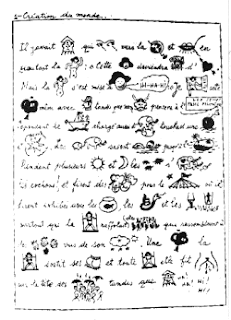Herménégilde Chiasson
1989
National Film Board of Canada
55 min.
The National Film Board is one of Canada's most important cultural institutions. Important, as far as I'm concerned, because the film board has produced numerous films of relevance to this blog. Several of those films, such as Acts of Defiance and l'Acadie l'Acadie !?! have already been profiled on this blog. Canada as a site of colonial domination and inter-colonial struggle has produced many of the kinds of socio-cultural fractures that countercultures grow from. Herménégilde Chiasson's film about Jack Kerouac's life and family history follows one of those lines of fracture from Quebec into Lowell Massachusetts, an industrial town where many French Canadian's immigrated to in the late 19th century, and it was also the birthplace of seminal Beat author Jack Kerouac, a descendant of those immigrants. The mother of this unabashedly American iconoclast were, in fact, Quebecois.
Chiasson's film is an investigation into the life of Kerouac and his roots in this immigrant Quebecois-American culture, and it is also a look at this community itself. The documentary is a typical mix of interviews with members of the Quebecois community in Lowell and read quotations or old television interview segments from the famous author. Visually, the film shows old photographs juxtaposed against contemporary footage of the city of Lowell during the winter, and this winter aesthetic immediately conjures up ideas of Canadian towns despite the fact that its an American city on display.
This film also goes over many of the known details of Kerouac's life, such as his football scholarship to Columbia, his becoming a writer, and Allen Ginsberg appears to discuss their first meeting. The documentary's main focus however is the connections between its implied subjects, Canadian and American, mother and child, alien and native. Some of the interview subjects talk about growing up in Lowell and developing from their families an intimate knowledge of Canadian/Quebecois politics and society. Many of the Kerouac quotations referred to in the film refer to his mother, and in the context of this film the implication is that to refer to his mother is to refer to Quebec as well.














